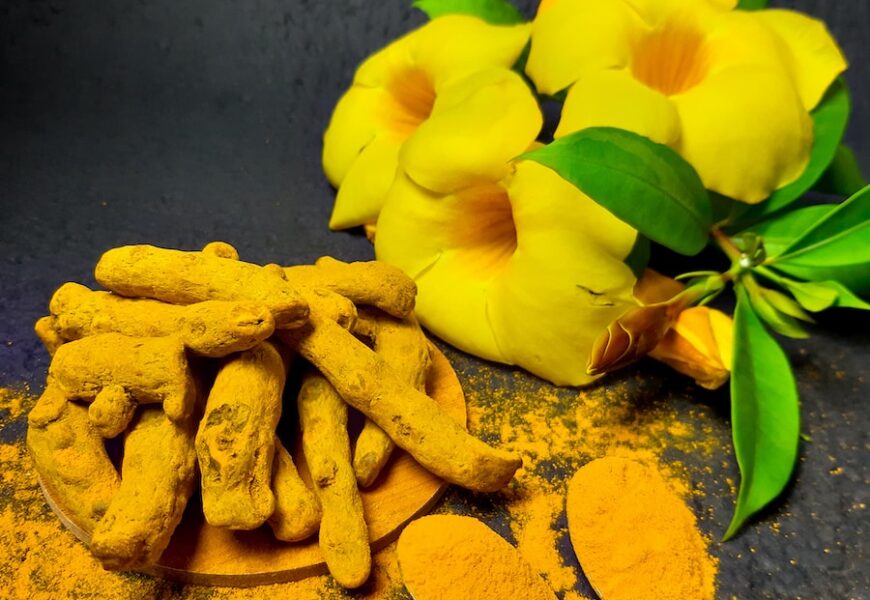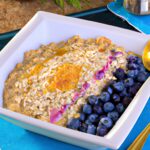Are you looking for a natural way to improve your health? Look no further than turmeric! This vibrant yellow spice has been used for centuries in Ayurvedic medicine for its powerful anti-inflammatory and antioxidant properties. And now, modern research is confirming what traditional healers have known all along – adding turmeric to your diet can have a profound impact on your health.
What is Turmeric?
Turmeric is a spice that comes from the turmeric plant, which is native to Southeast Asia. It is a member of the ginger family and has a long history of use in traditional medicine. Turmeric contains a powerful compound called curcumin, which is responsible for its many health benefits.
Health Benefits of Turmeric
Adding turmeric to your diet can provide a wide range of health benefits. Here are just a few:
- Anti-inflammatory: Chronic inflammation is linked to a wide range of health problems, including arthritis, heart disease, and cancer. Curcumin, the active ingredient in turmeric, has been shown to have powerful anti-inflammatory effects. In fact, some studies have found it to be as effective as anti-inflammatory drugs, but without the side effects.
- Antioxidant: Curcumin is also a potent antioxidant, which means it helps to protect your cells from damage caused by free radicals. This can help to prevent chronic diseases and slow down the aging process.
- Brain Health: Curcumin has been shown to have neuroprotective properties, which means it helps to protect your brain from damage and may even improve cognitive function. Some studies have found that it can help to improve memory and reduce the risk of Alzheimer’s disease.
- Heart Health: Turmeric may also be beneficial for your heart. Some studies have found that it can help to reduce cholesterol levels and improve blood flow, which can lower the risk of heart disease.
- Cancer Prevention: There is also some evidence to suggest that curcumin may help to prevent cancer. It has been shown to have anti-cancer properties and may help to inhibit the growth of cancer cells.
How to Add Turmeric to Your Diet
Now that you know about the many health benefits of turmeric, you may be wondering how to add it to your diet. Here are a few ideas:
- Golden Milk: Golden milk is a traditional Ayurvedic drink made with turmeric, milk, and honey. It is a delicious and comforting way to enjoy the health benefits of turmeric.
- Turmeric Tea: Turmeric tea is another simple and delicious way to add turmeric to your diet. Simply steep a teaspoon of turmeric in hot water with a slice of fresh ginger and a squeeze of lemon.
- Curries: Turmeric is a staple ingredient in many Indian curries. Adding it to your favorite curry recipe is an easy way to incorporate it into your diet.
- Smoothies: You can also add turmeric to your favorite smoothie recipe for an extra boost of nutrition.
- Supplements: If you don’t like the taste of turmeric or don’t have time to cook with it, you can also take it in supplement form. Look for a high-quality supplement that contains a standardized amount of curcumin.
Recipe for Turmeric Rice
Ingredients:
- 1 cup of basmati rice
- 1 and 3/4 cups of water
- 1/2 tsp of turmeric powder
- 1 tbsp of ghee or oil
- 1/2 tsp of cumin seeds
- 1/2 tsp of salt
- 2 cloves
- 1 cinnamon stick
- 2 cardamom pods
Instructions:
- Rinse the basmati rice in cold water until the water runs clear.
- In a pot, heat the ghee or oil over medium heat. Add in the cumin seeds and let them sizzle for a few seconds.
- Add in the cloves, cinnamon stick, and cardamom pods and cook for an additional 30 seconds, stirring constantly.
- Add in the rice and stir well, making sure each grain is coated with the ghee or oil.
- Pour in the water and add in the turmeric powder and salt. Stir well.
- Increase the heat to high and bring the mixture to a boil.
- Once it’s boiling, reduce the heat to low and cover the pot with a lid.
- Simmer for 18-20 minutes, or until the rice is fully cooked and the water has been absorbed.
- Once the rice is done, turn off the heat and let it sit for 5 minutes.
- Fluff the rice with a fork and remove the cloves, cinnamon stick, and cardamom pods before serving.
Enjoy your delicious and healthy Turmeric Rice!
Precautions
While turmeric is generally considered safe, there are a few precautions to keep in mind:
- Interactions: Turmeric may interact with certain medications, including blood thinners and diabetes medications. If you are taking any medications, be sure to talk to your doctor before adding turmeric to your diet.
- Pregnancy: Pregnant women should avoid taking large amounts of turmeric, as it may stimulate the uterus and cause contractions.
- Allergies: Some people may be allergic to turmeric. If you experience any symptoms of an allergic reaction, such as hives or difficulty breathing, stop using turmeric immediately and seek medical attention.
Conclusion
Turmeric is a powerful spice with a wide range of health benefits. Adding it to your diet is a simple and delicious way to improve your health and prevent chronic diseases. Whether you enjoy it in a comforting cup of golden milk or add it to your favorite curry recipe, there are many ways to incorporate turmeric into your daily routine. Just be sure to talk to your doctor if you are taking any medications or have any concerns about adding turmeric to your diet.
- Aggarwal BB, Harikumar KB. Potential therapeutic effects of curcumin, the anti-inflammatory agent, against neurodegenerative, cardiovascular, pulmonary, metabolic, autoimmune and neoplastic diseases. The International Journal of Biochemistry & Cell Biology. 2009;41(1):40-59. doi:10.1016/j.biocel.2008.06.010.
- Chainani-Wu N. Safety and anti-inflammatory activity of curcumin: a component of tumeric (Curcuma longa). The Journal of Alternative and Complementary Medicine. 2003;9(1):161-168. doi:10.1089/107555303321223035.
- He Y, Yue Y, Zheng X, Zhang K, Chen S, Du Z. Curcumin, inflammation, and chronic diseases: how are they linked? Molecules. 2015;20(5):9183-9213. doi:10.3390/molecules20059183.
- Kocaadam B, Şanlier N. Curcumin, an active component of turmeric (Curcuma longa), and its effects on health. Critical Reviews in Food Science and Nutrition. 2017;57(13):2889-2895. doi:10.1080/10408398.2015.1077195.
- Prasad S, Aggarwal BB. Turmeric, the Golden Spice: From Traditional Medicine to Modern Medicine. In: Benzie IFF, Wachtel-Galor S, eds. Herbal Medicine: Biomolecular and Clinical Aspects. 2nd edition. Boca Raton (FL): CRC Press/Taylor & Francis; 2011. Chapter 13. Available from: https://www.ncbi.nlm.nih.gov/books/NBK92752/


